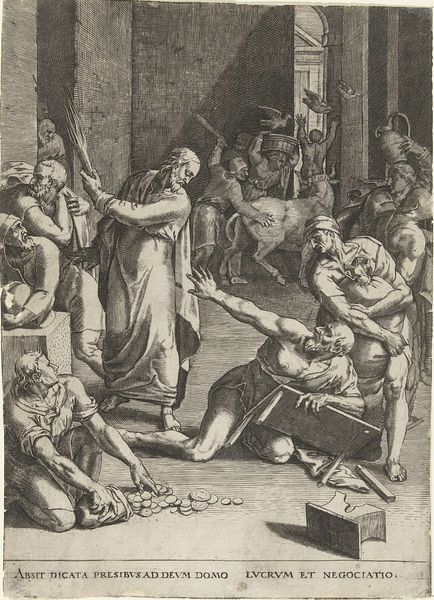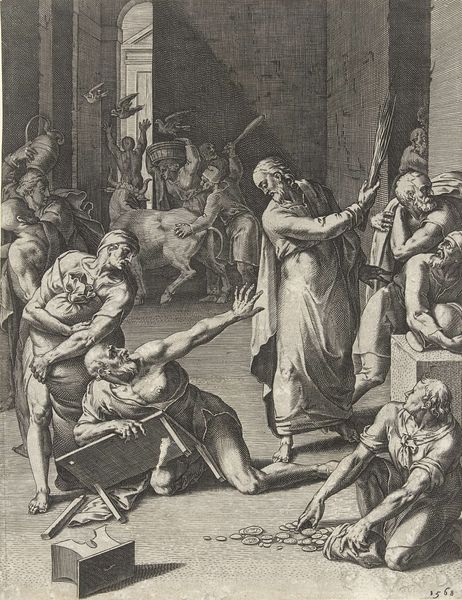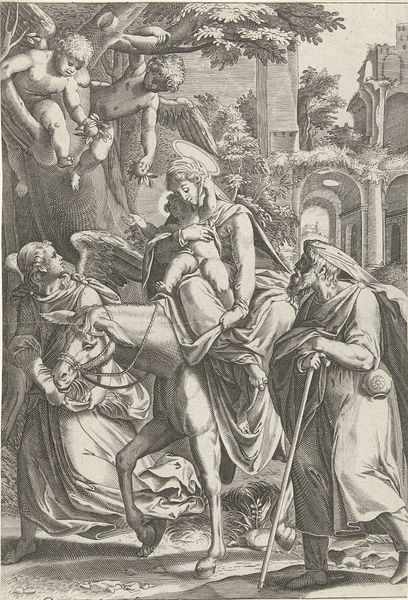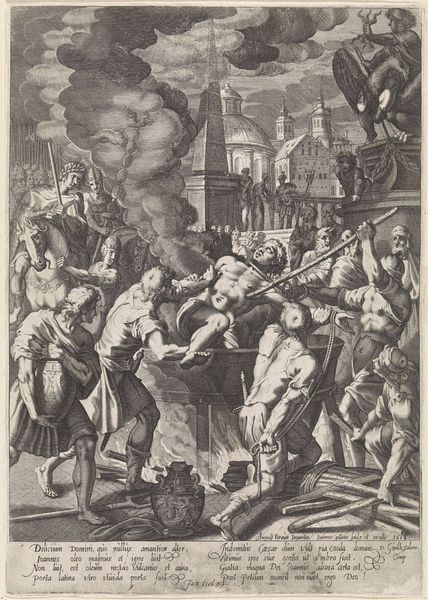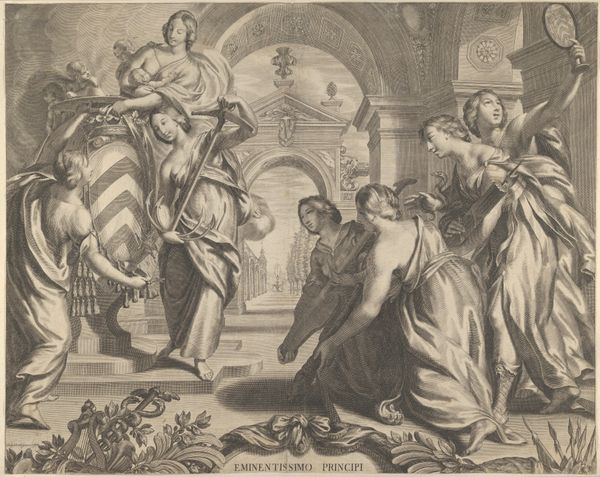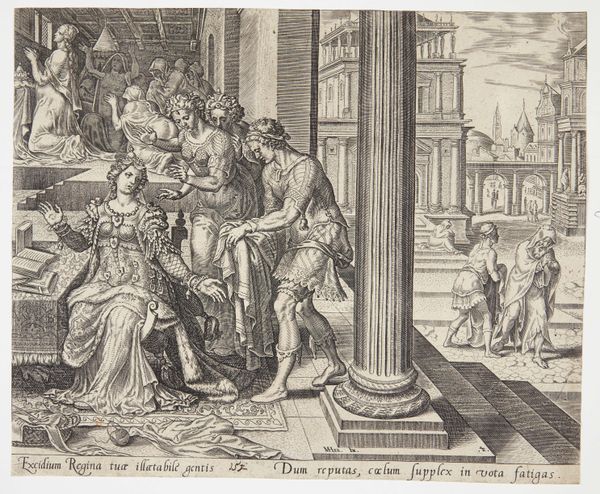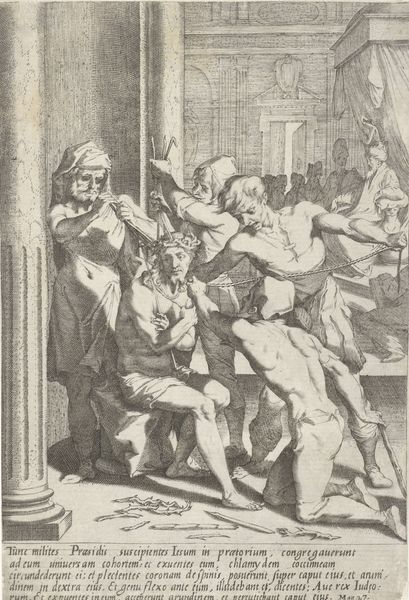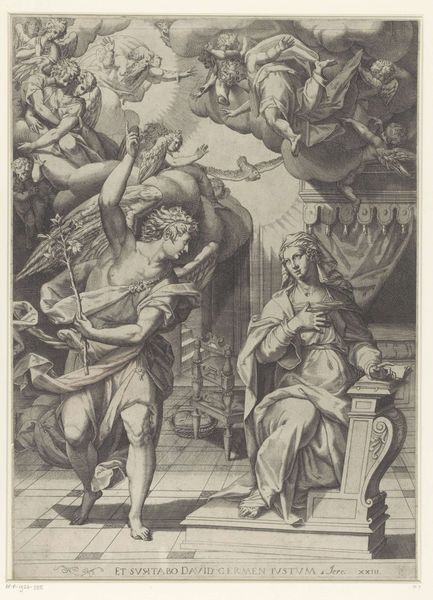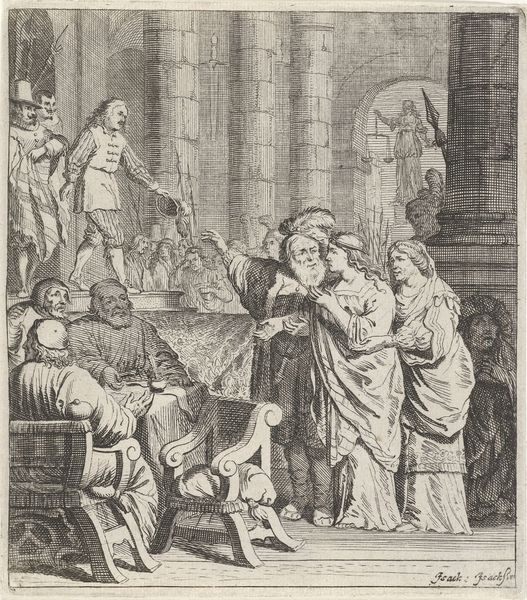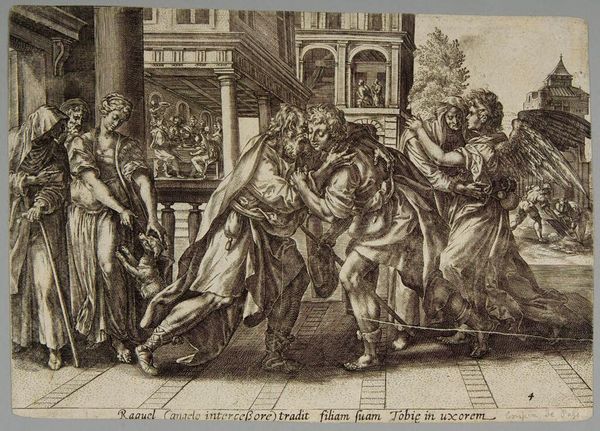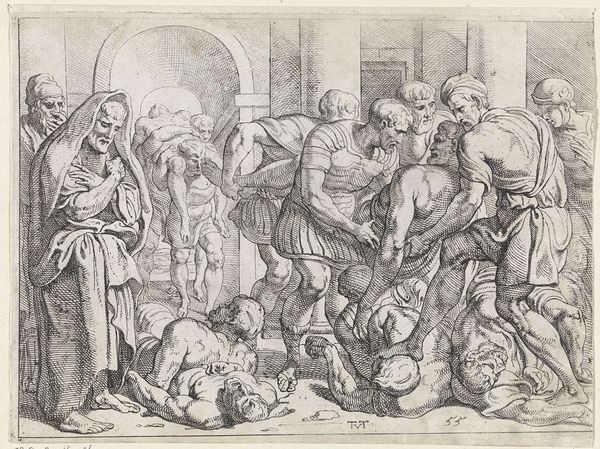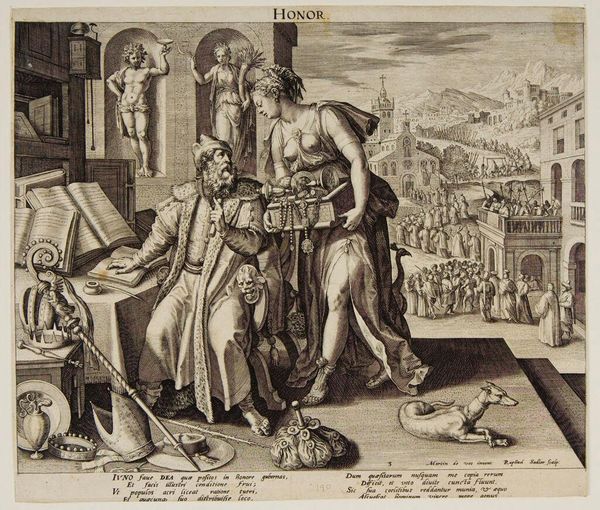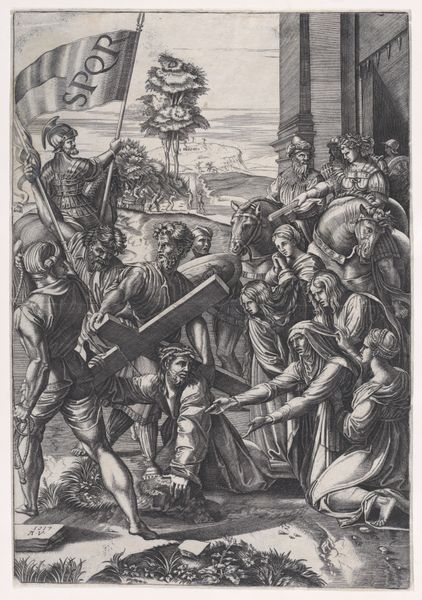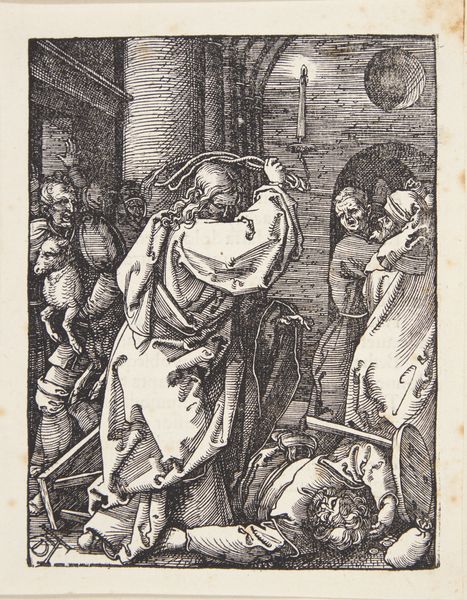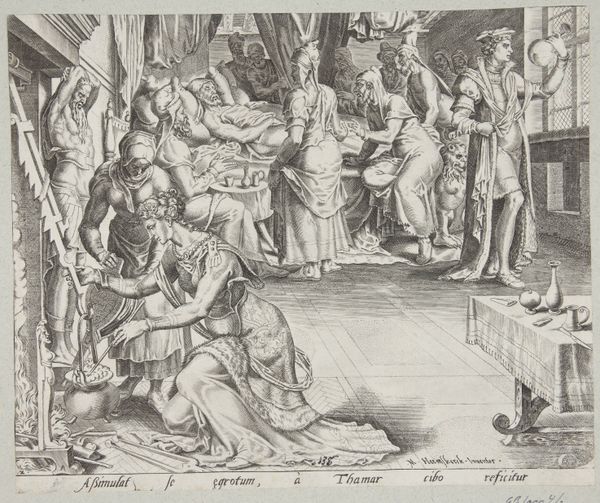
Dimensions: support: 1550 x 1598 mm frame: 1740 x 1791 x 70 mm
Copyright: CC-BY-NC-ND 4.0 DEED, Photo: Tate
Editor: Henry Gibbs' "Aeneas and his Family Fleeing Burning Troy," is quite large, and it really captures a sense of chaos and urgency. What symbols stand out to you in this depiction of the Trojan War? Curator: The burning city is more than just a backdrop; it's a symbol of collapse, of lost identity. Aeneas carrying his father, Anchises, speaks to filial piety, a key virtue. Does this image echo any contemporary feelings about displacement and loss of homeland? Editor: That's a powerful connection. It makes the painting feel relevant even today. Curator: Indeed. Gibbs uses a timeless narrative, layering it with symbols that resonate across centuries. What do you make of the colors and composition? Editor: I see the bright figures contrasting against the dark, smoky background emphasizes their desperation and the importance of their escape. Curator: Precisely. It's a visual reminder that even amidst destruction, some values, some memories, are worth preserving. Editor: It’s like Gibbs is saying that even in the worst moments, culture and family endure. Curator: Yes, and perhaps he's also asking us what symbols we will carry forward.
Comments
tate 10 months ago
⋮
http://www.tate.org.uk/art/artworks/gibbs-aeneas-and-his-family-fleeing-burning-troy-t06782
Join the conversation
Join millions of artists and users on Artera today and experience the ultimate creative platform.
tate 10 months ago
⋮
This subject comes from the Roman poet Virgil’s epic poem the Aeneid. As Troy is invaded by the Greeks, the hero Aeneas escapes with his young son Ascanius. He carries his elderly father Anchises, but his wife Creusa will be lost; here, Gibbs shows her being attacked by a Greek soldier. For many Britons this scene of war, destruction, and desperate families being split up, would have echoed the recent civil war. It is the only known work signed by a Kentish gentleman called Henry Gibbs. Narrative paintings by British-born artists of this period are extremely rare. Gallery label, July 2008
